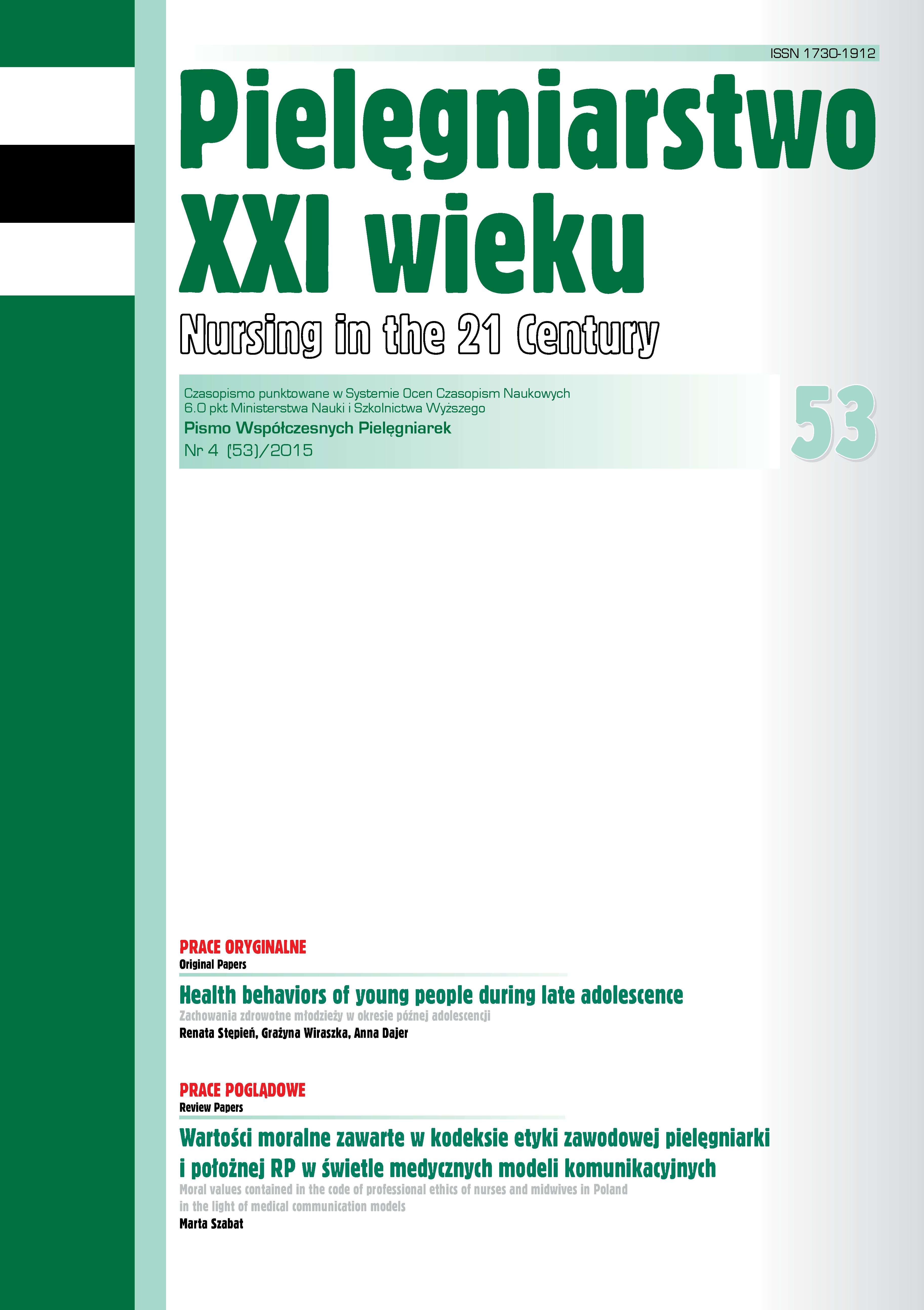The professional and social position of nurse officers in Prison Service and the determining factors
DOI:
https://doi.org/10.12923/p21w-2015-4/49Keywords:
professional and social position, professional development, education, nurse officer in Prison ServiceAbstract
THE PROFESSIONAL AND SOCIAL POSITION OF NURSE OFFICERS IN PRISON SERVICE AND THE DETERMINING FACTORS
Aim. The goal of the study was to assess the professional and social position of nurse officer in Prison Service and the determining factors.
Material and Methodology. The authors of the research used a diagnostic survey with the use of a questionnaire within the group of 146 nurse officers from all over the country, who took part in trainings organised by The Central Prison Service Training Facility in Kalisz. The analysis of gathered research data was conducted with the use of Pearson’s linear correlation method.
Results. The study showed that Prison Service nurse officers had quite a high opinion about their professional and social position. The majority of those surveyed derive huge satisfaction from their work. Respondents assessing the social position of the nursing profession in Prison Service give it a medium-high status. Respondents also appreciate the importance of training and continuing education to increase their social and professional position.
Conclusion. The research results allowed for concluding that the work of a nurse officer in Prison Service is rewarding and gives satisfaction. The factors affecting the satisfaction mainly includes: job security, high wages, the possibility of promotion and professional development. Another factor strengthening the position of professional nurse officers in Prison Service is professionalism and the social position is highly influenced by professional reliability. Professional development has the influence on the level of theoretical and practical knowledge, which results in an increase of professional competence.
References
1. Franek GA, Łukasz-Paluch K, Cholewka B. Koncepcja roli zawodowej pielęgniarki w literaturze przedmiotu. Problemy Pielęgniarstwa. 2012; 20: 258.
2. Kędzierska H. Kariery zawodowe nauczycieli w labiryncie oświatowych przeobrażeń. Przegląd Pedagogiczny. 2011; 2: 89-90.
3. Kot-Doniec B, Zarzycka D, Kiryłowicz E, i wsp. Dysonans pomiędzy samooceną pozycji zawodowej i społecznej pielęgniarki, położnej a oceną pacjentów i przedstawicieli zawodów medycznych. Pielęgniarstwo XXI wieku. 2013; 1 (44): 28.
4. Żebrowski J. Socjologiczne aspekty zawodu i pozycji społecznej – droga do tożsamości wychowawców profesjonalnych. Studia Gdańskie, t. V. Gdańsk: Wydawnictwo Gdańskie Wyższej Szkoły Humanistycznej; 2008. s. 31.
5. Kołodziej A. Czynniki określające status społeczny pielęgniarek. Hygeia Public Health. 2014; 1 (49): 69-70.
6. www.ckppip.edu.pl/doki/pozycja_zawody_med.doc (dostęp: 25.01.2015).
Downloads
Published
Issue
Section
License
Copyright (c) 2015 Violetta Cebulska, Violetta Koźlak, Anetta Pollok, Violetta Jachimowicz, Robert Koźlak (Autor)

This work is licensed under a Creative Commons Attribution 4.0 International License.




